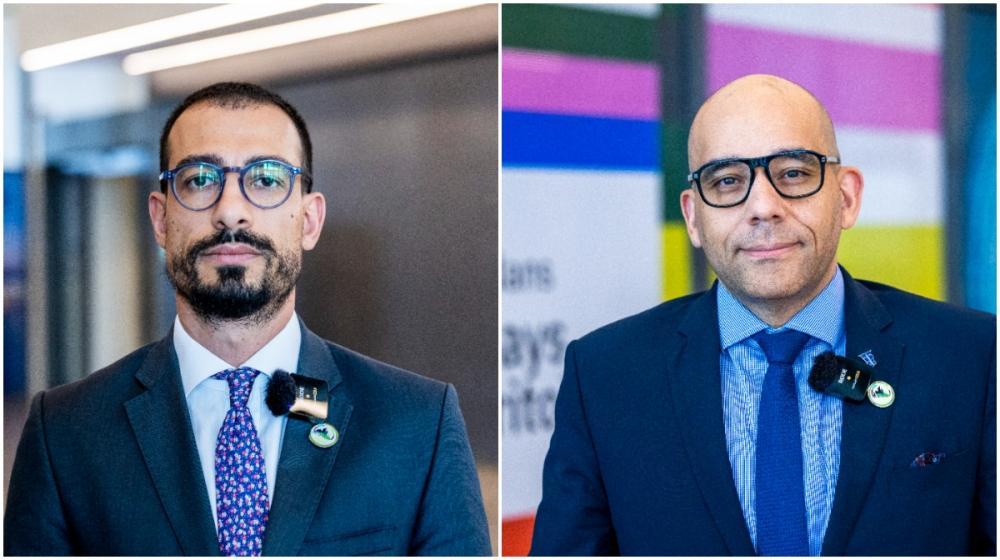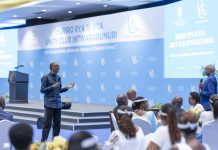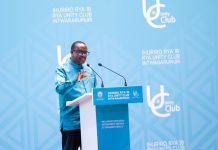Africa-Press – Rwanda. Government officials from Kosovo and Quebec have expressed their admiration for Rwanda’s transformation after the 1994 Genocide against the Tutsi. They spoke to The New Times on November 20, the final day of the 46th Ministerial Conference of La Francophonie.
The two-day conference held in Kigali from November 19 to 20 focused on the theme “30 Years after the Beijing Conference: The Contribution of Women in the Francophone World.” This marked the 1995 World Conference on Women while also addressing ongoing challenges and progress in promoting women’s leadership across governance, culture, diplomacy, peace, and sustainable development in the Francophone world.
Arbër Maliqi, the Deputy Minister of Internal Affairs of Kosovo, described his first visit to Rwanda as a deeply rewarding experience. Maliqi underscored the strong parallels between Kosovo and Rwanda as post-conflict countries. He highlighted Rwanda’s impressive post-genocide recovery and development, which he found particularly inspiring.
“I am, first of all, a researcher. I do research on public administration in post-conflict countries and, Kosovo and Rwanda are both post-conflict countries and I’m very impressed with the work that has been done in Rwanda after the Genocide of 1994 and how far Rwanda has gone in development and a development that does not leave anyone behind,” he said.
“And I’m very proud to also say that Kosovo is going through the same path.”
He pointed to Kosovo’s post-conflict path since its war in 1998-1999 and independence in 2008, saying that Kosovo is now a leader in the Western Balkans in key indices such as democracy, socio-economic development, transparency, and the fight against corruption.
“It is very inspiring for me to be here in Rwanda and get to meet my colleagues and discuss with them and see how we can get inspired also from your case; what can we improve in our case in Kosovo and how we can increase the cooperation between the two countries?”
In reference to the conference’s focus on gender balance, Maliqi indicated that Kosovo has made progress in this area, citing the fact that women in Kosovo’s parliament have not relied on gender quotas but have been elected on their merit, a clear sign of the public’s trust in their leadership.
Maliqi expressed a desire to see Kosovo surpass its current 40 per cent female representation in parliament, following Rwanda’s model of having over 63 per cent female MPs.
He underscored the need for governments to create pathways for women to succeed and fully contribute to society.
Maliqi offered a broader message to the world, reflecting on the global instability caused by conflicts. Wars create chaos, hinder development, and often benefit only a small elite, he stressed. Drawing from Rwanda and Kosovo’s experiences, he called for global unity in the pursuit of peace and the preservation of the environment for future generations.
‘What strikes me most is the reconstruction, the beauty, and the progress’
Christopher Skeete, the Minister of International Relations and La Francophonie for Quebec, Canada, commended Rwanda during his first visit to the country. Skeete acknowledged that while Rwanda’s history is often defined by the 1994 Genocide, it is the country’s remarkable post-genocide recovery and progress that should be the focus of global attention.
“What I love about the country is, you know, from far away; from Canada, from Quebec, [when] we hear Rwanda, we always think about the Genocide, but I think the story for Rwanda is, yes of course that history, but mostly what came after,” he said.
“And so, what I’m discovering is that there’s more to Rwanda than what happened many years ago. There is what you’ve built on top of that and so it’s a beautiful story,” he said, lauding the strides made in rebuilding Rwanda, particularly the central role women played in the country’s reconstruction.
“So, as a first-time visitor to Rwanda what strikes me the most is the reconstruction, the beauty, and the progress.”
Skeete underscored that Rwanda’s history, especially in terms of women’s leadership in rebuilding the country, is a testament to the power of women in driving change.
With 63 per cent of Rwanda’s parliament made up of women, Skeete recognised the importance of amplifying women’s voices in public policy and community-building.
He also expressed his gratitude for the warmth and hospitality shown by the Rwandan government and shared his excitement to discover more about Rwanda.
For More News And Analysis About Rwanda Follow Africa-Press






